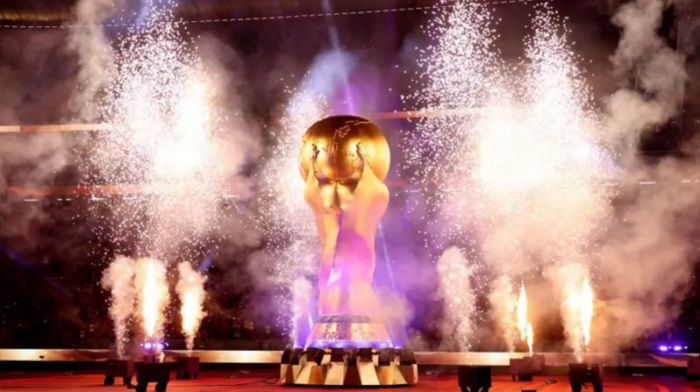One tournament, two hemispheres, six countries.
Spain, Portugal and Morocco will co-host the 2030 men’s World Cup – but the opening matches will be held in South America to mark the centenary of the Fifa World Cup.
That means teams will play across different seasons and hemispheres within the same tournament.
Who else wanted to host in 2030?
Four South American nations – Argentina, Chile, Paraguay and Uruguay – submitted a joint bid in early 2023.
But by October that year, Fifa confirmed the joint bid of Morocco, Portugal and Spain was the sole candidate.
Spain and Portugal initially launched a dual bid in 2021, with Ukraine joining the following year – after the country was invaded by Russia.
But Ukraine was replaced by Morocco amid reported concerns because of the ongoing war and governance issues at the Ukraine Football Association.
Spain hosted the World Cup in 1982 but Portugal and Morocco have never hosted.
Which stadiums are being used?
This hasn’t been confirmed yet, though the official bid evaluation report, contained 20 stadiums, split between the three co-hosts.
Spain looks set to stage the most matches, having put forward 11 stadiums.
That includes Barcelona’s Nou Camp – the largest football stadium in Europe – as well as Real Madrid’s Bernabeu.
The Nou Camp is under renovation which should take its capacity to 105,000.
Portugal is set to use three stadiums – Estadio Jose Alvalade, Estadio da Luz and Estadio do Dragao – the homes of Sporting CP, Benfica and Porto respectively.
Morocco has put forward six stadiums.
The President of the Royal Moroccan Football Federation (FRMF) announced last year that five existing stadiums would be used, as well as a new stadium in the city of Casablanca.
This will be the first time World Cup matches are held in North Africa.
The stadiums proposed to host the final are the Bernabeu, Nou Camp and Morocco’s Grand Stade Hassan II, which is being built.
Why are the opening matches in South America?
The opening three matches of the tournament will take place in Uruguay, Argentina and Paraguay.
That is because Fifa is commemorating 100 years since the inaugural World Cup.
That competition was staged in Uruguay and won by the hosts, with Argentina the beaten finalists. Paraguay, meanwhile, is where the South American football confederation – Conmebol – is based.
Conmebol is the oldest continental football federation in the world, and the only one in existence at the 1930 World Cup.
Who qualifies for the 2030 World Cup?
The tournament hosts secure automatic qualification, which means Morocco, Portugal and Spain – plus Uruguay, Argentina and Paraguay – are guaranteed places.
The other places will be determined by qualifying competitions in each of the continental confederation.
Qualification places are divided between the confederations.
These quotas are yet to be confirmed for 2030, but here’s how the places were allocated for the 2026 World Cup, which is also a 48-team tournament:
- Asian Football Confederation – eight places
- Confederation of African Football – nine places
- Concacaf (North, Central America and Caribbean) – six places
- Conmebol – six places
- Oceania Football Confederation – one place
- Uefa (Europe) – 16 places
The final two spots will be decided through a play-off tournament featuring six teams.
What will the format be?
The tournament will again feature 48 teams following the expansion from 2026; since 1998, it has been a 32-team competition.
The 2030 format is set to replicate 2026. Teams will be split into 12 groups of four teams, with the top two and eight best third-placed teams progressing to an extra last-32 round.
The expanded number of teams means 104 matches will be played across the tournament.
Fifa says the match schedule will be adapted to give teams playing in the centenary games in South America additional days to travel, rest and prepare.
The tournament will run from 8 June, with the final on 21 July 2030.
Source: BBC

